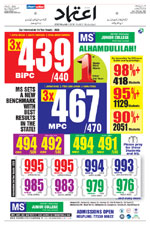Artists, architects wired to think differently: study
Fri 30 Jun 2017, 13:20:58

Artists and architects think differently compared to other people, and use elaborate, detailed descriptions when they talk about spaces, scientists say.Researchers found that when asked to talk about images of places, painters are more likely to describe the depicted space as a two-dimensional image, while architects are more likely to focus on paths and the boundaries of the space.
"We found that painters, sculptors and architects consistently showed signs of their profession when talking about the spaces we showed them, and had more elaborate, detailed descriptions than people in unrelated professions," said Hugo Spiers from University College London in the UK.
Researchers brought in 16 people who were either painter, sculptors or architects.
The participants were presented with a Google Street View image, a painting of St Peter's Basilica, and a computer- generated surreal scene.They were then asked to describe the environment and explain how they would explore the space, and suggest changes to the environment in the image.
The researchers categorised elements of the responses for both qualitative and quantitative analyses using a novel
technique called Cognitive Discourse Analysis, designed to highlight aspects of thought that underlie linguistic choices, beyond what speakers are consciously aware of.
technique called Cognitive Discourse Analysis, designed to highlight aspects of thought that underlie linguistic choices, beyond what speakers are consciously aware of.
"By looking at language systematically we found some consistent patterns, which turned out to be quite revealing," said Thora Tenbrink from Bangor University in the UK.
Researchers found that the painters tended to shift between describing the scene as a 3D space or as a 2D image.Architects were more likely to describe barriers and boundaries of the space, and used more dynamic terms, while sculptors' responses were between the two, researchers said.
Painters and architects also differed in how they described the furthest point of the space, as painters called it the 'back' and architects called it the 'end.'
The control participants gave less elaborate responses, which the authors say went beyond just a lack of expert terminology.
"Our study has provided evidence that your career may well change the way you think," Spiers said.
The study was published in the journal Cognitive Science.
No Comments For This Post, Be first to write a Comment.
Most viewed from Health
AIMIM News
Latest Urdu News
Most Viewed
May 26, 2020
Do you think Canada-India relations will improve under New PM Mark Carney?
Latest Videos View All
Like Us
Home
About Us
Advertise With Us
All Polls
Epaper Archives
Privacy Policy
Contact Us
Download Etemaad App
© 2025 Etemaad Daily News, All Rights Reserved.






























